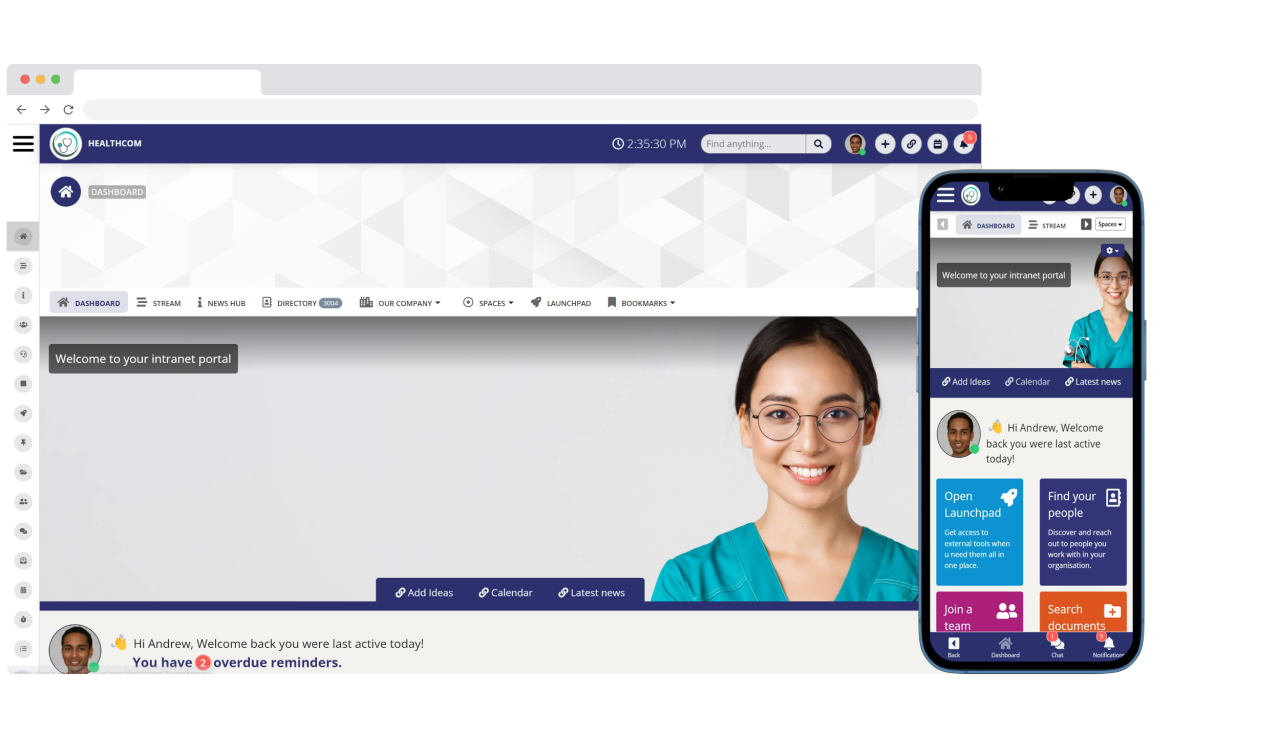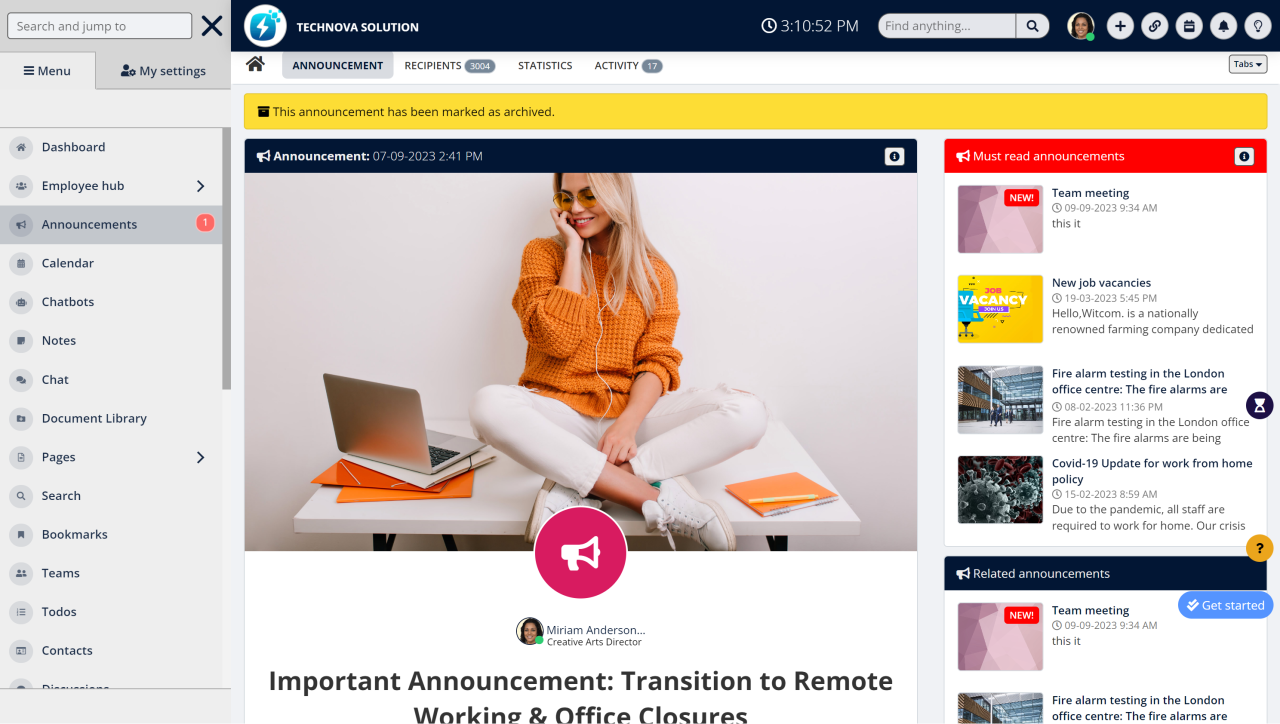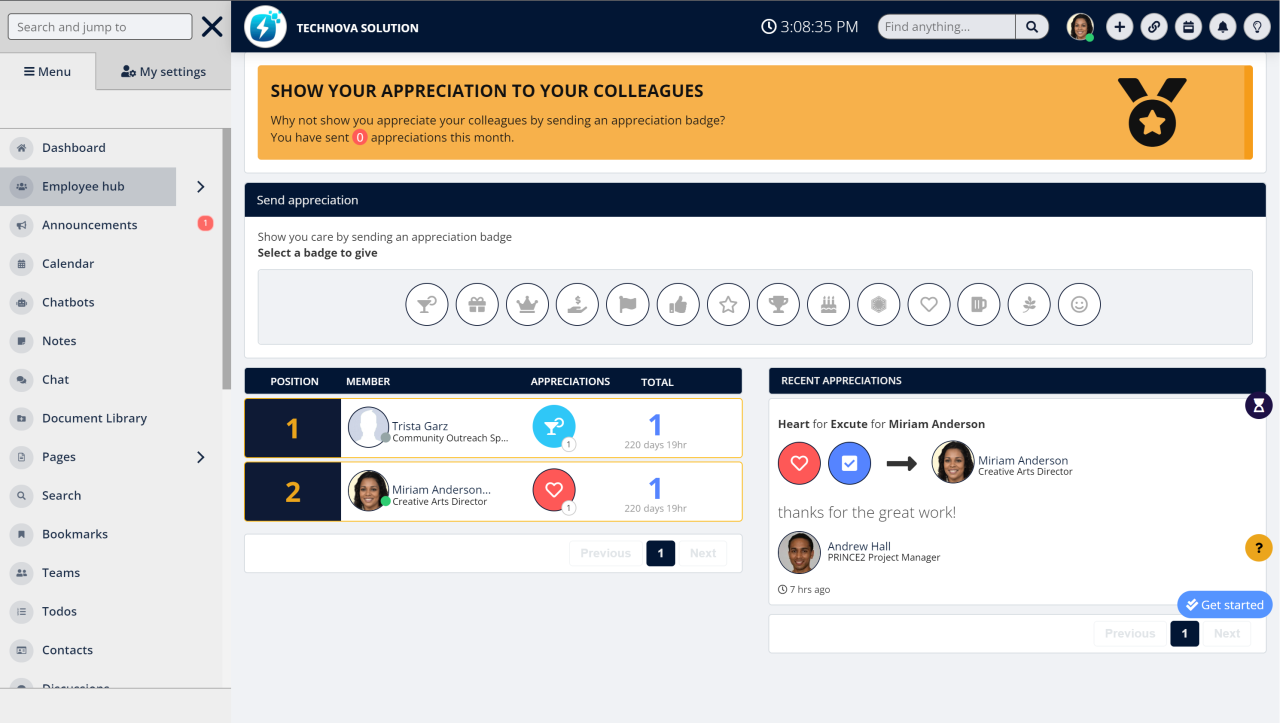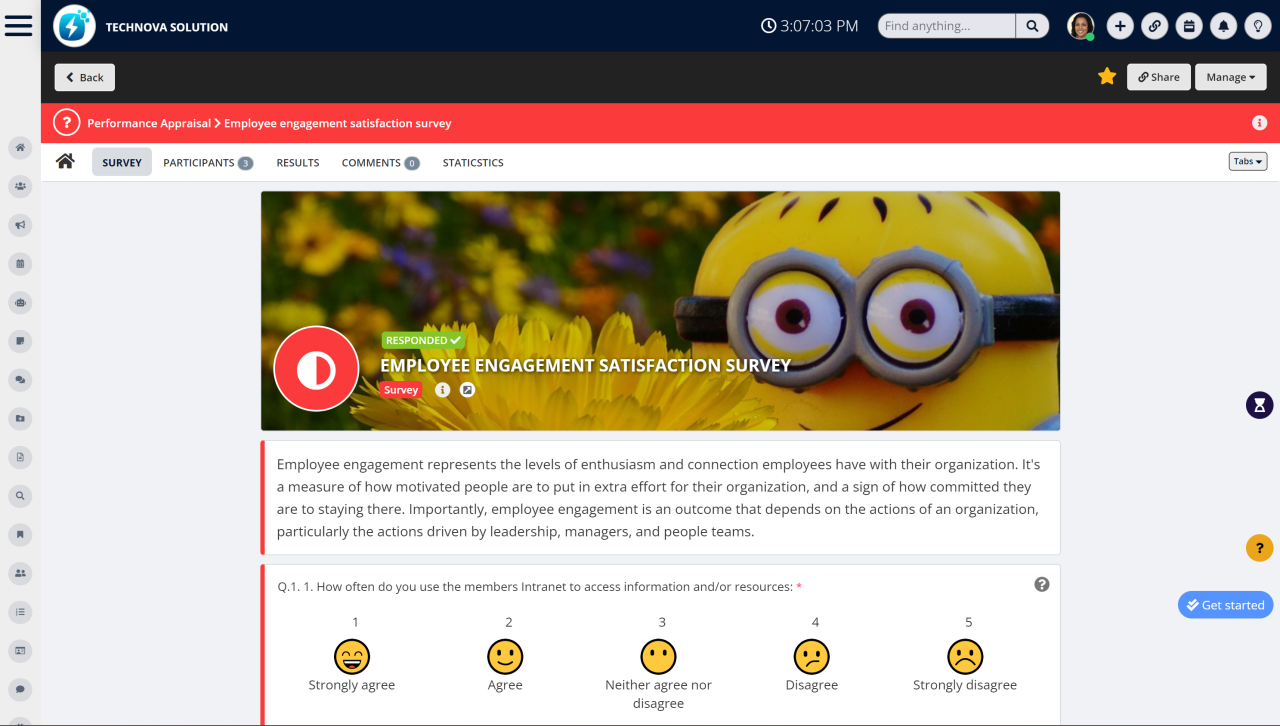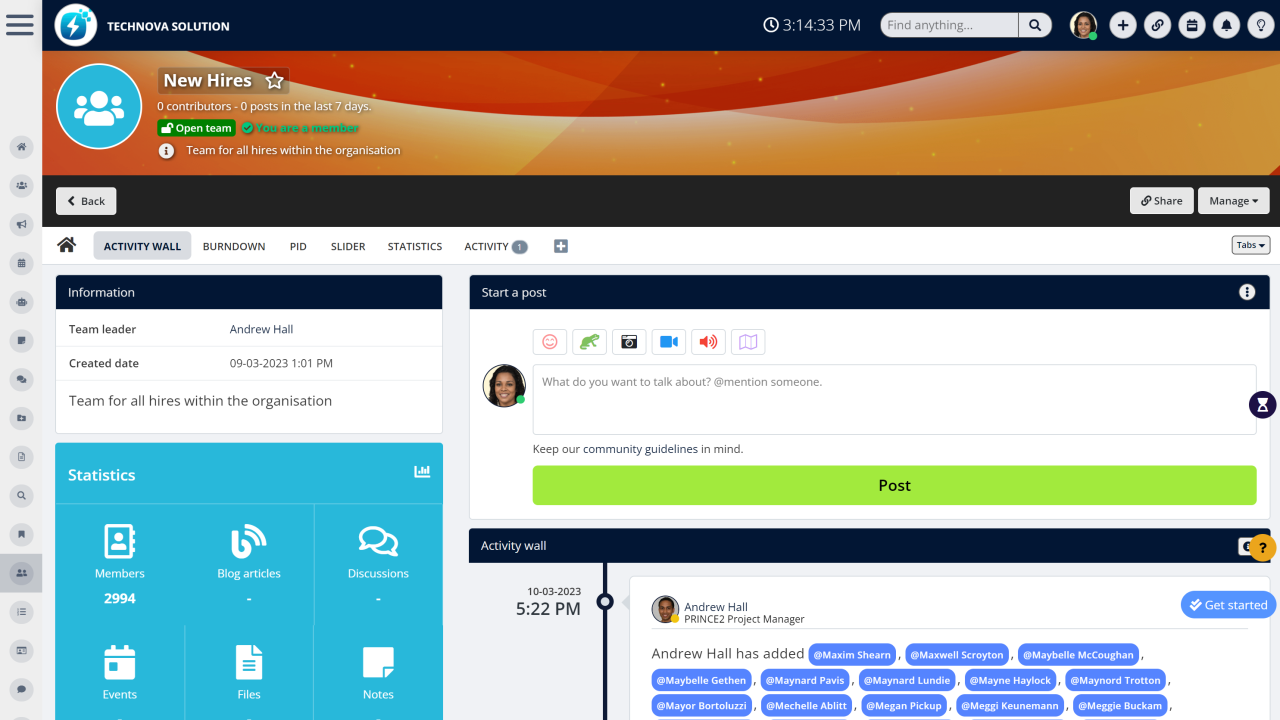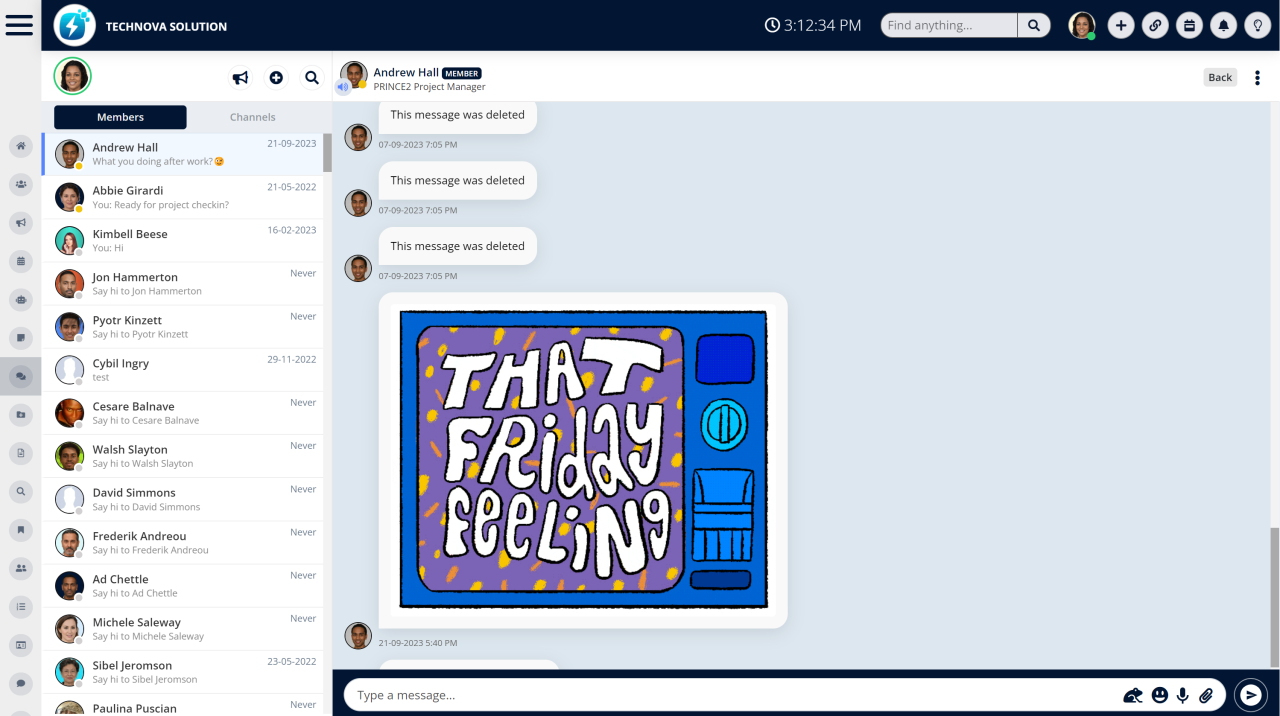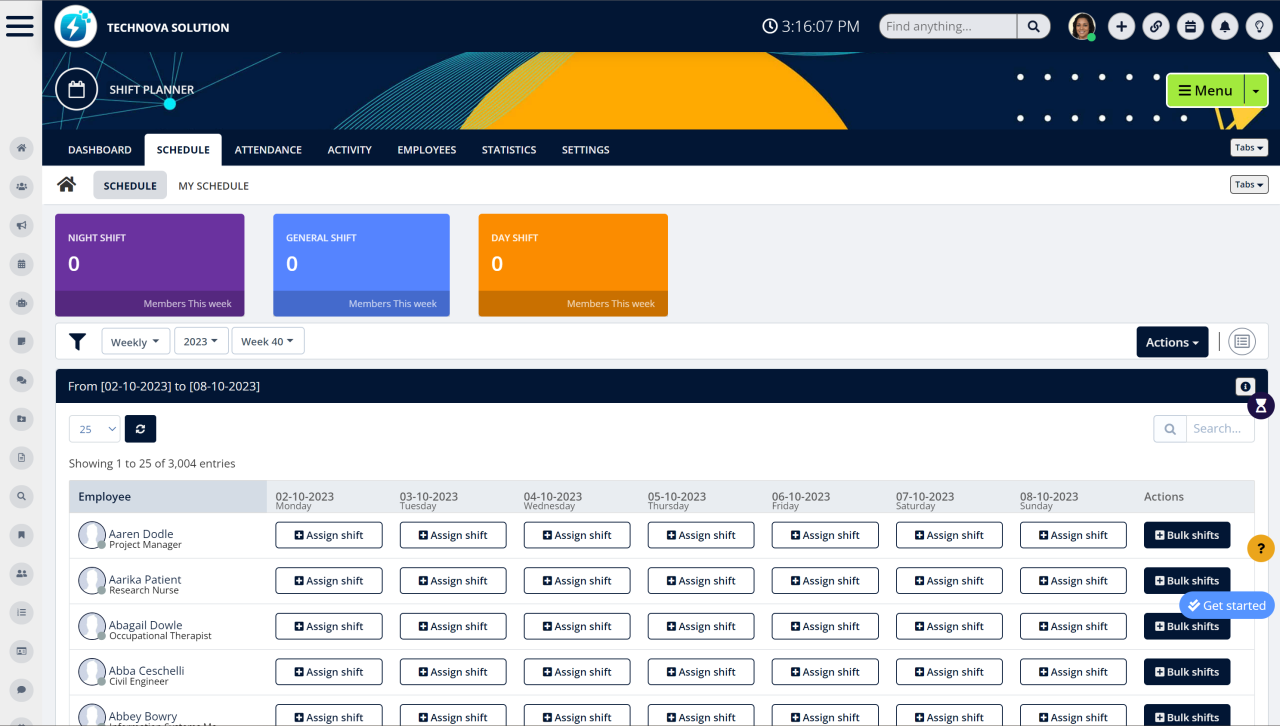Insight Blog
Agility’s perspectives on transforming the employee's experience throughout remote transformation using connected enterprise tools.
14 minutes reading time
(2760 words)
How to Improve Employee Engagement in Retail in 2023
Enhancing engagement among retail workers is now of paramount importance. So the questions is How to Improve Employee Engagement in Retail in 2023?
The retail sector is currently facing a series of formidable challenges.
Alongside pricing pressures, declining consumer confidence, and persistent supply chain disruptions, the industry is grappling with significant issues related to recruiting and retaining employees. Enhancing engagement among retail workers is now of paramount importance.
Indeed, the wholesale and retail sector presently boasts the second-highest number of job vacancies in absolute terms across the entire economy, as reported by the British Retail Consortium (BRC).
Indeed, the wholesale and retail sector presently boasts the second-highest number of job vacancies in absolute terms across the entire economy, as reported by the British Retail Consortium (BRC).
The count has surged to 148,000, representing an increase of approximately 14,000 compared to pre-pandemic levels.
Predictably, this shortage of talent has become a major source of concern for an overwhelming majority (99%) of retail leaders, marking a notable increase from the already substantial 94% figure reported in 2021. Large retailers, in particular, are grappling with a heightened sense of unease regarding this situation.
Predictably, this shortage of talent has become a major source of concern for an overwhelming majority (99%) of retail leaders, marking a notable increase from the already substantial 94% figure reported in 2021. Large retailers, in particular, are grappling with a heightened sense of unease regarding this situation.
Among the leaders surveyed, 39% cited a lack of available candidates in the labor market as a significant challenge, a notable increase from the 24% reported the previous year.
Additionally, other key factors contributing to this talent crisis include employees shifting to different career paths (34%) and a shortage of individuals possessing the necessary skills for the available roles (34%).
What Is Employee Engagement in Retail?
Engagement within the workplace is fundamentally about the emotional investment an employee holds for their organization. It encapsulates a profound sense of concern and dedication towards both the tasks at hand and the entity they are contributing to. This principle applies universally across various industries, and retail is no exception.
Nonetheless, when it comes to the retail sector, there is a distinctive dynamic at play, one that can be particularly challenging. Retail employees typically find themselves working in shifts and directly interacting with customers on a daily basis, making the cultivation of engagement a unique and often more arduous endeavor.
Engaged retail employees stand out by their genuine warmth in welcoming customers, their depth of knowledge about the products or services they offer, and their unwavering commitment to providing exceptional assistance.
On the flip side, disengaged retail workers are more inclined to deliver subpar customer service, and their lack of enthusiasm can permeate the workplace, negatively impacting the morale and performance of their colleagues.
In essence, while the concept of employee engagement remains consistent across industries, its manifestations and challenges take on a distinct character in the demanding and customer-facing realm of the retail sector.
Why Is It Important in the Retail Industry?
According to a Gallup report, engaged employees demonstrate a 17% boost in productivity, highlighting a clear connection between employee engagement and the quality of their work.
Now, let's delve into the specific context of the retail industry that we mentioned earlier. The unique demands placed on retail workers underscore the significance of employee engagement in various aspects of their roles.The paramount importance of employee engagement in retail becomes apparent when we consider the frequent and direct interactions between employees and customers, whether they occur in person, over the phone, or through digital channels.
A striking statistic shows that 96% of customers emphasize the importance of top-notch customer service when making decisions about which brands to choose. This underscores a critical chain reaction: engaged employees deliver superior customer service, which in turn translates into increased sales for the business.
For retail managers and supervisors, the path to smoother operations and greater success becomes markedly easier when their employees are actively engaged in their work.
4 Top factors influencing retail employees' decision to stay in a role
- They like working with co-workers (70%)
- 70% of employees enjoy working with their colleagues.
- Employees highly value a positive work environment and strong relationships with their colleagues.
- Employees report that working with their colleagues is one of the most important factors in their job satisfaction.
- Their job is enjoyable (68%)
- 68% of employees find their job to be enjoyable and fulfilling.
- Employees are engaged and motivated in their work.
- Employees feel that their work is meaningful and that they are making a difference.
- Diversity (67%)
- 67% of employees value a diverse and inclusive workplace.
- Employees feel that a diverse workplace is essential to their success and well-being.
- Employees believe that diversity enriches the workplace and leads to better decision-making.
- Job stability (67%)
- 67% of employees value job security and stability.
- Employees feel confident in their future with the company and are not concerned about layoffs.
- Employees feel secure in their ability to provide for their families and meet their financial obligations.
6 top reasons driving retail employees to leave a role
- Little or no educational/training benefits (61%)
- 61% of employees feel that their company does not offer enough educational or training benefits.
- Employees are eager to learn and grow in their careers, but feel that their company is not providing them with the resources they need to do so.
- Employees believe that educational and training benefits are essential for their professional development and satisfaction.
- The job is too stressful or physically exhausting (59%)
- 59% of employees feel that their job is too stressful or physically demanding.
- Employees are feeling burned out and overwhelmed.
- Employees believe that their company needs to do more to support their well-being.
- The company has a poor reputation (57%)
- 57% of employees are embarrassed or ashamed to work for their company due to its poor reputation.
- Employees feel that their company's reputation is negatively impacting their morale and productivity.
- Employees believe that their company needs to do more to improve its reputation.
- They dislike their manager (57%)
- 57% of employees have a negative relationship with their manager.
- Employees feel that their manager is unsupportive, disrespectful, or incompetent.
- Employees believe that their manager is a major source of their job dissatisfaction.
- Their schedule is inflexible (57%)
- 57% of employees feel that their work schedule is too inflexible and does not allow them to balance their work and personal lives.
- Employees are frustrated with their lack of control over their own time.
- Employees believe that their company needs to offer more flexible work arrangements.
- They weren't recognised for their efforts (57%)
- 57% of employees feel that their work is not appreciated or recognized by their manager or the company.
- Employees feel undervalued and unmotivated.
- Employees believe that their company needs to do more to recognize and reward their hard work.
Follow us and access great exclusive content everyday: Follow us on Google News
How can we improve employee engagement in the retail sector?
Here are some key strategies to engage or re-engage your workforce, boost productivity, and retain talented employees:
- Foster Connections: Facilitate opportunities for employees to get to know each other better. Introduce team members to their colleagues on the same shift and organize activities that promote social interaction. Consider hosting at least one all-employee event each year, where you can even invite their partners and families to strengthen bonds.
- Enhance Workplace Enjoyment: Create an enjoyable break room environment that is comfortable and well-stocked with beverages, snacks, and essential supplies. Consider providing meals or snacks, especially when employees work during public holidays. Encourage employees to explore and test new products, and institute policies like a 'no-working-on-your-birthday' day to make work more enjoyable.
- Open and Transparent Communication: Clearly articulate the company's purpose and values to employees. Keep them informed about organizational developments through bulletin boards and regular updates. Ensure that line managers conduct weekly one-on-one meetings with their team members and publish shift schedules well in advance to help employees plan their lives effectively.
- Invest in Professional Development: Schedule learning and development activities during working hours to support employees' growth without encroaching on their personal time. Work collaboratively with employees to develop individual career plans and set achievable sales goals. Provide the necessary resources and equipment to help them excel in their roles.
- Recognition and Rewards: Acknowledge and praise employees for exceptional customer service and celebrate personal achievements, such as surpassing their own performance records. Educate employees about the benefits and perks available to them, and encourage them to ask questions. Ensure timely and accurate payment of wages and offer staff discounts as a token of appreciation.
- Promote Personal Responsibility: Solicit feedback from employees regularly to understand their perspectives and ideas. Empower them to take ownership of their work processes and encourage innovation to drive efficiency and effectiveness.
These engagement initiatives span various aspects of HR, including payroll, benefits, and organizational culture. To effectively implement and manage these strategies, it's crucial to have integrated software systems in place.
Fragmented, siloed systems can hinder the seamless execution of these initiatives and make the process more challenging.
Intranet software for retail with HR and benefits built in
Concerned about facing a staffing shortage during the busy seasons? Cultivating an engaged workforce can significantly decrease the likelihood of absenteeism and high employee turnover, ensuring that you have a fully staffed team at your disposal.
But how do you transition from the fear of your worst-case scenarios becoming a reality to the satisfaction of having a dedicated and cohesive team? Well its time to Exploring Enterprise Intranet, the perfect solution to keep remote and deskless employees engaged on the job.
Here are some practical tips to enhance engagement and productivity within the retail setting.
You may also like: Best Apps for Employees: UPDATED 2022 – A Complete Guide
Better Internal Comms
Many retail employees spend extended periods working in-store on their feet. Thus, it's counterintuitive that internal communication primarily relies on email and desktop applications.
Modern technology provides a more efficient means of engaging with deskless workers – through their mobile devices!
An employee engagement app offers access to company news, schedules, chats, and other features typically found on a modern intranet. This ensures that frontline staff are no longer the last to receive important information.
Modern technology provides a more efficient means of engaging with deskless workers – through their mobile devices!
An employee engagement app offers access to company news, schedules, chats, and other features typically found on a modern intranet. This ensures that frontline staff are no longer the last to receive important information.
For instance, the companies that use the AgilityPortal mobile app boasts an impressive user access rate of 99%, illustrating the compelling potential of mobile technology in connecting with deskless workers.
Incorporate Recognise and Reward
Working in retail can present its challenges. Dealing with demanding customers can sometimes make employees feel unappreciated due to the mixed receptions they receive. It's your responsibility as an employer to ensure they feel valued.
However, the bustling nature of retail may not always allow for private conversations, and broadcasting celebratory messages over the store's public address system might not be the most suitable option.
However, the bustling nature of retail may not always allow for private conversations, and broadcasting celebratory messages over the store's public address system might not be the most suitable option.
Implementing an employee recognition feature on your company intranet can provide a structured and efficient approach to acknowledging and appreciating employees.
This process can enhance the overall employee experience, making recognition easier, more systematic, and a regular part of the workplace culture.
Free ebook: How To Get Your Intranet Off The Ground
Encourage and Listen to Feedback
Would you find your work engaging if it seemed like your boss wasn't attentive to your input? If not, it's essential to recognize that not all your employees share the same sentiment.
Offer them opportunities to share feedback and involve them in decisions relevant to their roles. Implementing pulse surveys equipped with analytics dashboards enables ongoing feedback and provides valuable, actionable insights.
Encourage Open Communication
Effective and consistent communication plays a pivotal role in fostering employee engagement across all positions, especially when your employees work varying shifts.
Inadequate communication can result in reduced clarity of responsibilities, heightened isolation, and a sense of disconnection among your team.
To address this, employees should have accessible means of communicating with both you and their colleagues without the need to constantly patrol the shop floor.
Company-wide instant messaging serves as a centralized platform that promotes open dialogue among teams.
Whether it's individual or group messaging, AgilityPortal's integrated chat function offers an intuitive communication solution for retail workers.
Build on Social Relationships
Studies reveal that 36% of employees express that having a friend at their workplace significantly enhances their anticipation of going to work.
Surprisingly, the importance of this aspect in employee engagement is occasionally underestimated and, in some companies, actively discouraged.
With the integration of social networks into both personal and professional life, these platforms can serve as valuable tools for nurturing workplace relationships.A modern intranet solution like AgilityPortal provides the ideal solution. It empowers employees to leverage features like instant messaging, event scheduling for social gatherings, and discussions of shared interests through community hubs.
This fosters a more connected and engaged work environment.
Keep an Eye Out on Absences Effectively
The irregular work schedules within the retail sector often lead to confusion and stress when it comes to requesting time off. This challenge is not limited to employees; managers also grapple with the dilemma of frequently having to decline absence requests due to understaffing issues.
However, effective absence management can substantially alleviate this problem.AgilityPortal offers an absence management platform that streamlines the process. It not only facilitates the booking and approval of holidays but also provides visibility into the absence schedules of other team members. This eliminates the need for constant reference to the holiday planner whenever someone makes a request.
Are you now finding it simpler to enhance employee engagement in the retail sector compared to just a few moments ago?
We understand the unique challenges of retaining and engaging staff within the retail industry.
Are you now finding it simpler to enhance employee engagement in the retail sector compared to just a few moments ago?
We understand the unique challenges of retaining and engaging staff within the retail industry.
Our aim is that this blog has underscored the significance of employee engagement in this sector and has provided actionable steps to achieve it.
Wrapping up
If you do not integrate employee engagement in your internal communication strategy, you may experience a number of negative consequences, including:
- Reduced employee morale and productivity: Employees who are not engaged are less likely to be motivated and productive. They may also be more likely to make mistakes and have lower customer satisfaction ratings.
- Increased employee turnover: Disengaged employees are more likely to leave their jobs. This can lead to increased costs for your company associated with recruiting and training new employees.
- A negative company culture: Disengaged employees can create a negative work environment for everyone. This can make it difficult to attract and retain top talent.
Benefits of employee engagement in retail
Engaged employees in retail can provide a number of benefits to your business, including:
- Improved customer service: Engaged employees are more likely to go the extra mile for customers. They are also more likely to be knowledgeable about your products and services, which can lead to better customer experiences.
- Increased sales: Engaged employees are more likely to be motivated to sell your products and services. They are also more likely to be able to build relationships with customers and encourage them to return.
- Reduced theft and shrinkage: Engaged employees are less likely to steal from their employer or engage in other forms of misconduct. This can save your company money in the long run.
- Improved employee retention: Engaged employees are more likely to stay with their company. This can reduce your costs associated with recruiting and training new employees.
How to integrate employee engagement in your internal communication strategy
There are a number of ways to integrate employee engagement in your internal communication strategy. Here are a few tips:
- Make employee engagement a priority: Let your employees know that you are committed to their engagement and that you value their input.
- Create a two-way communication channel: Encourage your employees to share their ideas and feedback. This can be done through surveys, town hall meetings, or one-on-one conversations with managers.
- Be transparent and honest with your employees: Keep your employees informed about important decisions and changes that are happening within the company. Be honest about the challenges that the company is facing, but also be positive about the future.
- Recognize and reward your employees: Make sure to recognize and reward your employees for their hard work and dedication. This can be done through formal recognition programs, informal shout-outs, or simply offering your employees a sincere thank you.
By following these tips, you can integrate employee engagement into your internal communication strategy and reap the many benefits that come with it.
Categories
Blog
(2670)
Business Management
(326)
Employee Engagement
(213)
Digital Transformation
(178)
Growth
(122)
Intranets
(120)
Remote Work
(61)
Sales
(48)
Collaboration
(40)
Culture
(29)
Project management
(29)
Customer Experience
(26)
Knowledge Management
(21)
Leadership
(20)
Comparisons
(7)
News
(1)
Ready to learn more? 👍
One platform to optimize, manage and track all of your teams. Your new digital workplace is a click away. 🚀
Free for 14 days, no credit card required.





